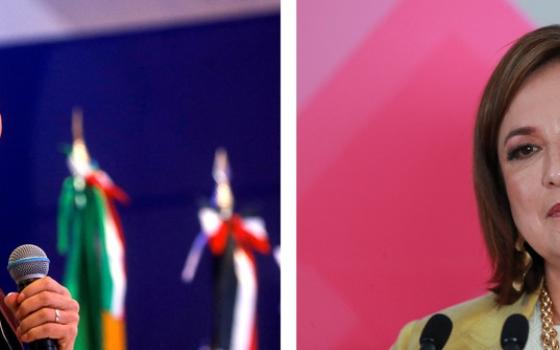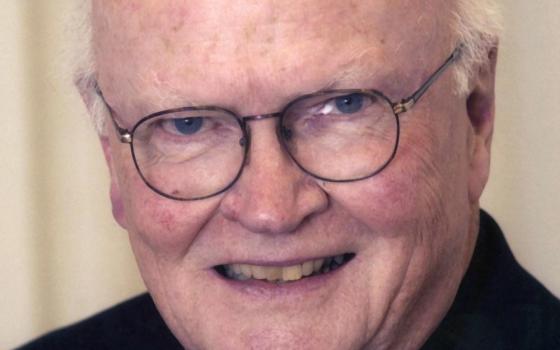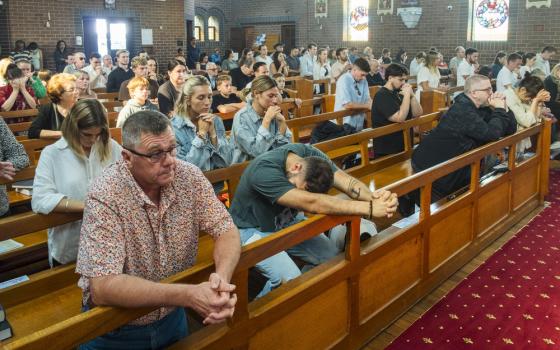Swift action now will save much later.
That was the consensus Sunday from the United Nations Intergovernmental Panel on Climate Change. The third paper from the panel’s fifth assessment report outlined the mitigation scenarios necessary to avoid climate change’s most catastrophic outcomes.
Among their conclusions, the 235 scientists authoring the 33-page report stated that to reach the substantial reductions in carbon emissions -- by 2050, slashing emissions by 40 to 70 percent of 2010 levels, and to near zero by century's end -- necessary to keep temperature change below 2 degrees Celsius compared to pre-industrial levels would require a dramatic change in investment patterns.
Particularly, reducing fossil fuel investments by $30 billion each year through 2029, while ramping up low-carbon investing in areas like renewables and nuclear energy to $147 billion annually. The report estimated current annual global energy system investments at $1.2 trillion.
Such investments would guide the planet toward the “tripling to nearly a quadrupling” of low-carbon energy sources needed by 2050 to maintain the 2-degrees benchmark; an even greater increase would be needed if the shift delayed until 2030. The report estimated the necessary moves would reduce global economic growth by .06 percent.
Days before the latest UN report published, Nobel Peace Prize winner and retired Archbishop Desmond Tutu became the latest voice to join the calls for divestment from fossil fuels, as well as the use of boycotts and sanctions common in the anti-apartheid movement to pressure countries and companies to take the necessary steps to curb carbon emissions.
“People of conscience need to break their ties with corporations financing the injustice of climate change,” he said Thursday in The Guardian.
Tutu, who has also spoken against the Keystone XL transnational pipeline, suggested boycotts of events, sports teams and media programming sponsored by fossil fuel companies and to “encourage more of our universities and municipalities and cultural institutions to cut their ties to the fossil-fuel industry,” while at the same time encouraging those companies to devote resources to sustainable energy.
“We cannot necessarily bankrupt the fossil fuel industry. But we can take steps to reduce its political clout, and hold those who rake in the profits accountable for cleaning up the mess,” he said.
Divestment has become a familiar refrain among climate activists, particularly on college campuses.
Doug Demeo, a fellow with the interfaith group GreenFaith, also saw similarities in the fossil fuel divestment campaigns, largely spurred at colleges by the 350.org-affiliated Go Fossil Free, to the 1980s anti-apartheid movement.
"Through a similar approach, the fossil fuel divestment campaign seeks to redraw society’s collective moral boundaries by asserting that institutions with a moral or educational mission should no longer profit from the fossil fuel industry," he wrote for the April 21 issue of America magazine.
After reviewing relevant Catholic teaching on responsible investing, Demeo argued that divesting from fossil fuels wouldn't handicap university endowments, nor should such a scenario justify a Catholic institution investing in ways that contradicts church teaching.
"Climate change has brought Catholic colleges and universities that invest in fossil fuel corporations to a moral crossroads," he said. "These institutions must now decide whether they will prioritize the integrity of their mission or the status quo of their investments in fossil fuels. Climate change shows the two to be mutually exclusive."
Back in November, NCR reported on divestment campaigns underway at two U.S. Jesuit schools, Georgetown University and Boston College (print edition only). At the time, Steve Falci, a senior investor specializing in sustainable development, forecasted what the U.N. climate panel reported, telling NCR that fossil fuels have an unpriced risk attached to them because of the uncertainty with how government mitigation efforts might affect the price of in-ground reserves.
“If you look at the demands for cleaner energy, more efficient energy, low carbon energy, along with the demand for other scarce resources [such as water], there’s a way to divert some of the money” currently invested in fossil fuels, he said. A 25-year veteran of equity investment management, Falci examined in August alternatives to fossil fuel stocks on the blog of his firm, Kleinwort Benson Investors.
As for the efforts at Georgetown and BC, neither school had taken steps toward divestment, though members of Georgetown’s administration and responsible investment committee remained in dialogue with GU Fossil Free, the student group behind the push.
The Boston College counterpart, BC Fossil Free, had less conversation with school leaders. But in March, a Boston College theologian endorsed the students’ campaign, providing references to Catholic teaching espousing environmental stewardship and socially responsible investing.
“Our BCFF students,” wrote Jesuit Fr. Raymond Helmick in the student newspaper, “are interested in divestment from companies involved in the fossil fuel business that is pouring more carbon dioxide into the atmosphere than our planet’s inhabitants can afford, and may already have done irreparable damage to your lives and, even much more so, those of your children.”
While less than a dozen, small schools have so far divested, Helmick said the first of the “big-league institutions” to break rank and follow suit “will have enormous influence, even in guiding investors who are our friends and donors to safer and more moral investments.”
Up the road, the divestment campaign at Harvard University has itself garnered much attention. In October, its president Drew Faust rejected students’ call for divestment of the school’s endowment, saying “The endowment is a resource, not an instrument to impel social or political change.”
In early April, Faust pledged to focus special attention in three areas related to climate change: increasing research in sustainable energy and climate change; reviewing new on-campus energy efficiency and reduction projects; and becoming signatories to two international organizations committed to best practices in sustainable investment.
The president did not alter her previous position against divestment, leading a group of 92 faculty three days later to express in an open letter their frustration with Faust’s statements and called on Harvard “to divest, as soon as possible” its holdings in fossil fuel corporations.
“Divestment is an act of ethical responsibility, a protest against current practices that cannot be altered as quickly or effectively by other means,” the April 10 letter read.
“The University either invests in fossil fuel corporations, or it divests. If the [Harvard] Corporation regards divestment as ‘political,’ then its continued investment is a similarly political act, one that finances present corporate activities and calculates profit from them," they said.
[Brian Roewe is an NCR staff writer. Follow him on Twitter: @BrianRoewe.]




